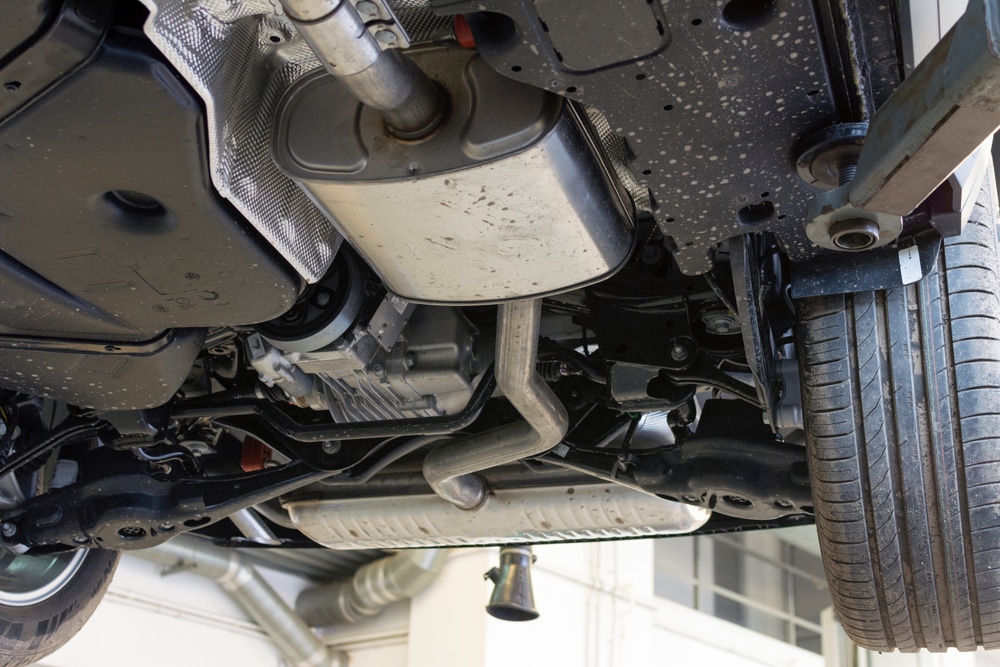According to the latest data from the National Insurance Crime Bureau (NICB), catalytic converter thefts more than tripled during 2020. In fact, while January 2020 recorded 652 catalytic converter thefts, these incidents repeatedly rose in frequency throughout the year—with December 2020 totaling 2,347 thefts. The average number of monthly catalytic converter thefts was 108 in 2018, a number which rose to 282 in 2019, before skyrocketing to an average of 1,203 monthly thefts in 2020.
A catalytic converter is a device that looks like a small muffler near a vehicle’s exhaust system. This device converts environmentally harmful exhaust emitted by a vehicle’s engine into less harmful gasses through the use of platinum, palladium or rhodium—all of which are precious metals. According to David Glawe, the president and CEO of the NICB, the increasing value of these metals in recent years has likely contributed to the surge in catalytic converter thefts.
“There is a clear connection between times of crisis, limited resources and disruption of the supply chain that drives investors towards these precious metals,” Glawe said. Along with catalytic converter thefts, the frequency of vehicle thefts also increased in 2020.
The ongoing COVID-19 pandemic drastically reduced the production of metals in overseas mines— disrupting the supply chain and making the precious metals found in catalytic converters more valuable. Currently, rhodium is valued at around $14,500 an ounce, palladium is valued at $2,336 per ounce and platinum is valued at $1,061 an ounce. Although, only a small portion of these metals go into a catalytic converter. As such, recyclers generally pay between $50 and $250 for a catalytic converter.
It only takes a few minutes to steal a catalytic converter. However, vehicle owners typically have to pay anywhere between $1,000 and $3,000 following the theft of a converter—not including the cost of alternate transportation and missed work.
Due to the location of a catalytic converter, high-riding vehicles make easier targets than low-riding ones. Vehicles that are parked in mass commuter parking lots or frequently left at shopping centers for long periods of time are particularly susceptible, according to the experts.
To prevent catalytic converter theft, the NICB suggests that vehicle owners take these steps:
- Always park in a garage or busy, well-lit area.
- Engrave your VIN or license plate number into your catalytic converter to make it traceable.
- Get your catalytic converter welded to your vehicle’s frame.
- Install an anti-theft device or a sensitive car alarm in your vehicle.
- Install motion-sensitive security lights at your home (if you store your vehicle outside).
If your catalytic converter is stolen, be sure to contact your insurer immediately. Catalytic converter theft is usually covered under car insurance policies through comprehensive coverage. Yet, keep in mind that this particular coverage is a level higher than what is required in most states.
For further information, contact us via the form below. Be sure to like us on Facebook and follow us on LinkedIn for more news and industry tips.

